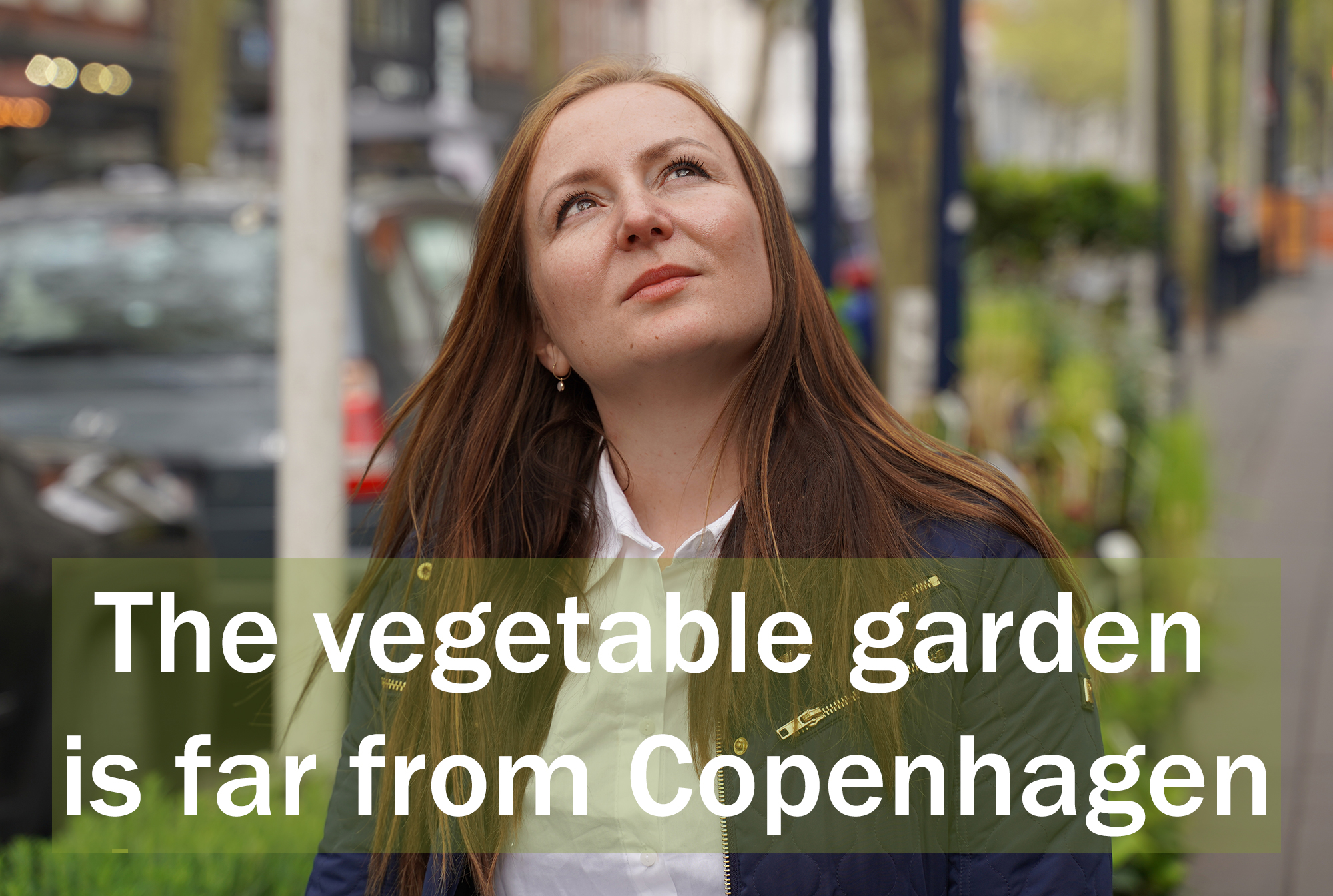
By Kristine Witt-Hansen
June 2020 (updated August 14)
In the small Ukrainian town of Tsyripinsk, Irina is taking care of her vegetable garden. Now is the time for a good effort if she wants a good yield. She plants cuttings in the greenhouse and weeds the potato field. The cucumber plants need to be tied up. And soon, the cherry blossoms shed their leaves and begin to bulge out. The pickling begins in July.
The vegetable garden gets additional attention during the Corona crisis, as the supermarkets are closed. This is how it works in the provinces. Still, 58-year-old Irina’s life is not quite like that of other Ukrainian women. She does look far beyond the rows of beans and tomatoes. Irina knows the world outside the fertile soil of southern Ukraine. She can chat about Barcelona and Paris. And find her way in Herlev.
When she was quite young, she had a daughter who opened up her life in a way she had not imagined. It is she, the daughter Gina, who meets CoronaGlobal at the globe in Lyngby Storcenter, before she has to pick up her son Alex in the private primary school. Gina is Danish, but she grew up on homegrown potatoes, pickled cherries and love, which can only find its way to the heart in the Russian language.
”It is as if the virus is ubiquitous. As if, you become sick from breathing outside your land register.”
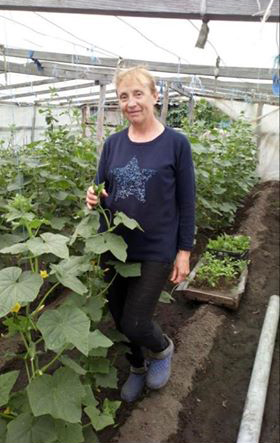
Denmark closed down first
– When I call my mother and tell her that now, Denmark is closing down she does not quite comprehend, as everything is still open in Ukraine. She thinks it very strange that it is so serious in Denmark, when there are no sick people in Ukraine at all. Gina looks down as she smiles. Because, that was of course not the case.
Two weeks later, the world is turned upside down. Everything is closed in Ukraine. Schools and businesses. Supermarkets are only open on weekends. And suddenly people are sick. The most serious affected areas are completely shut down. People are almost too frightened to go out. It is as if the virus is ubiquitous. As if, you become sick from breathing outside your plot. You have to stay home. The panic takes hold of people.
– My mother is agitated. Suddenly, it was all crazy. Many Ukrainians had returned from Italy. In Ukraine, it is very common to work abroad. Southern Europe in particular is popular. It is easier to get a job in Spain or Italy than in e.g. Denmark, Gina smiles. She has completed her higher education here and now works as an AC assistant at a language center. Ukrainians typically work as carers in the private sector. When the Ukrainian expats returned, they were not asked to quarantine. That is how they infected others. At least, that is the story that abounds.
Facts about COVID-19 in Denmark and Ukraine
Number of deaths per million inhabitants in Denmark: 106.7
Number of deaths per million inhabitants of Ukraine: 40.6
(Updated 04.08.20) Source: Danmarks Radio
Chain of infection in the realm of the dead
Then the stories started to spread. Gina talks daily with her mother on Messenger. One day she tells about a nurse who passed on the virus in a very special way. She passed it on in a way to which no blame could ever be attached.
– My mother was familiar with the nurse. She came from Tsyripinsk, where my mother lives. She died. A large funeral was held, for she was well liked and knew a lot of people. They needed to say goodbye. However, after the funeral several of those who had participated began to cough. All of a sudden, there was a whole lot of infected people in my hometown. Eventually, it turned out that the nurse had tested positive for COVID-19.
In the Orthodox Church, the coffin is open making it possible to see and touch the dead. Leave-taking is a much bigger deal in The Eastern Orthodox Church than it is in the Danish National Church. After the rituals, it is common to kiss the dead as a final farewell. In this way, the nurse came to infect the guests at her own funeral.
Facts about the funeral rites in the Orthodox Church
In the Orthodox Church, the coffin is open. The dead is blessed with holy water, and you read a prayer for forgiveness of sins to the dead. Afterwards, the dead gets the prayer. It is placed in the hand of the dead. And then the bereaved can say goodbye by kissing the dead. The saints are asked to intercede for the dead.
It is also custom to place a mixture of wheat and honey by the head of the deceased in the coffin. The wheat refers to the Gospel of John, who states that the planted grain of wheat must die before it can bear fruit. The honey is to make us remember the sweetness of eternal life. The mixture is made again several times after the funeral to help the deceased on his way.
Source: Religion.dk
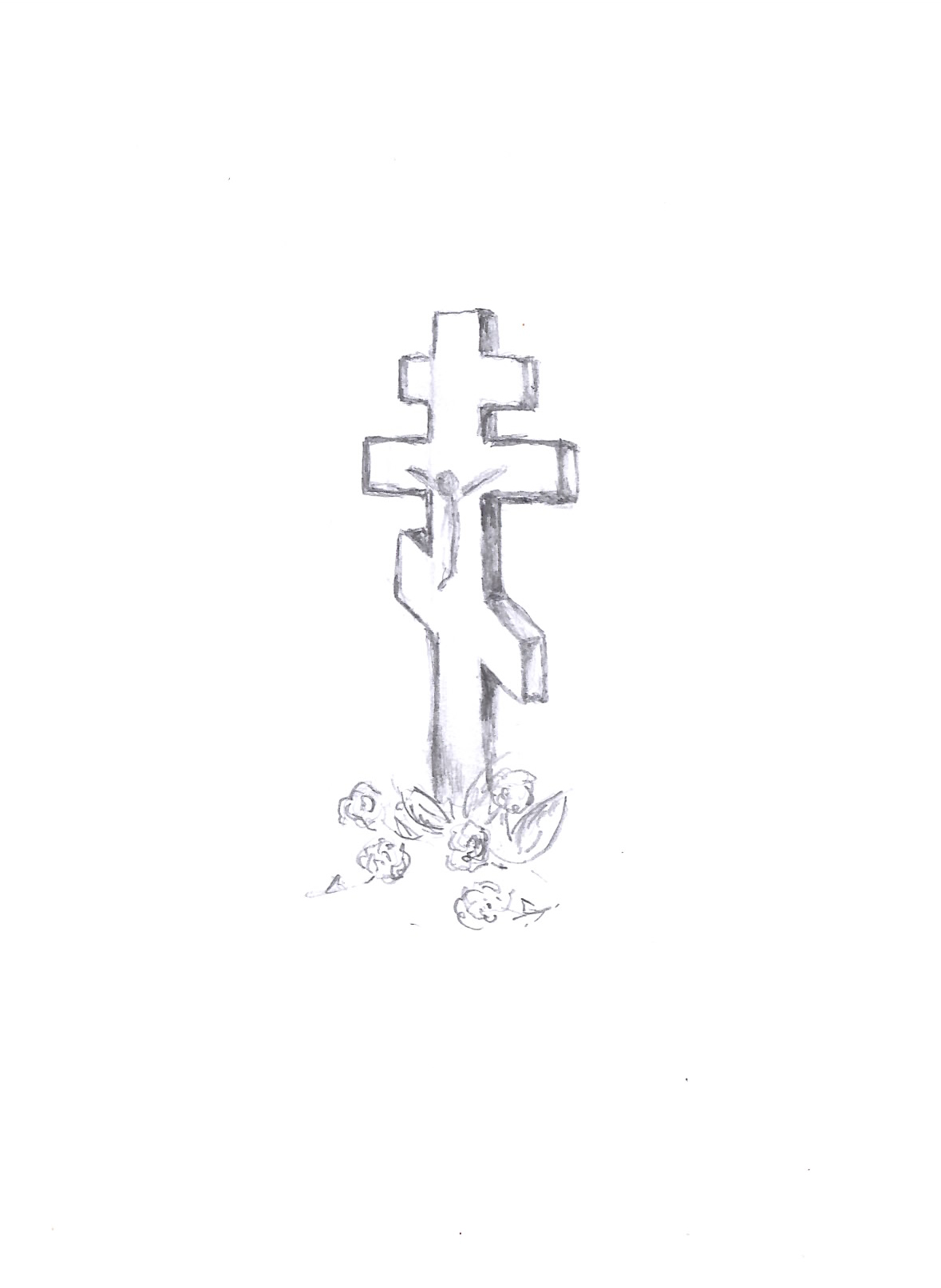
”The Ukrainians are focusing on the fact that it is not only old people who is dying.”
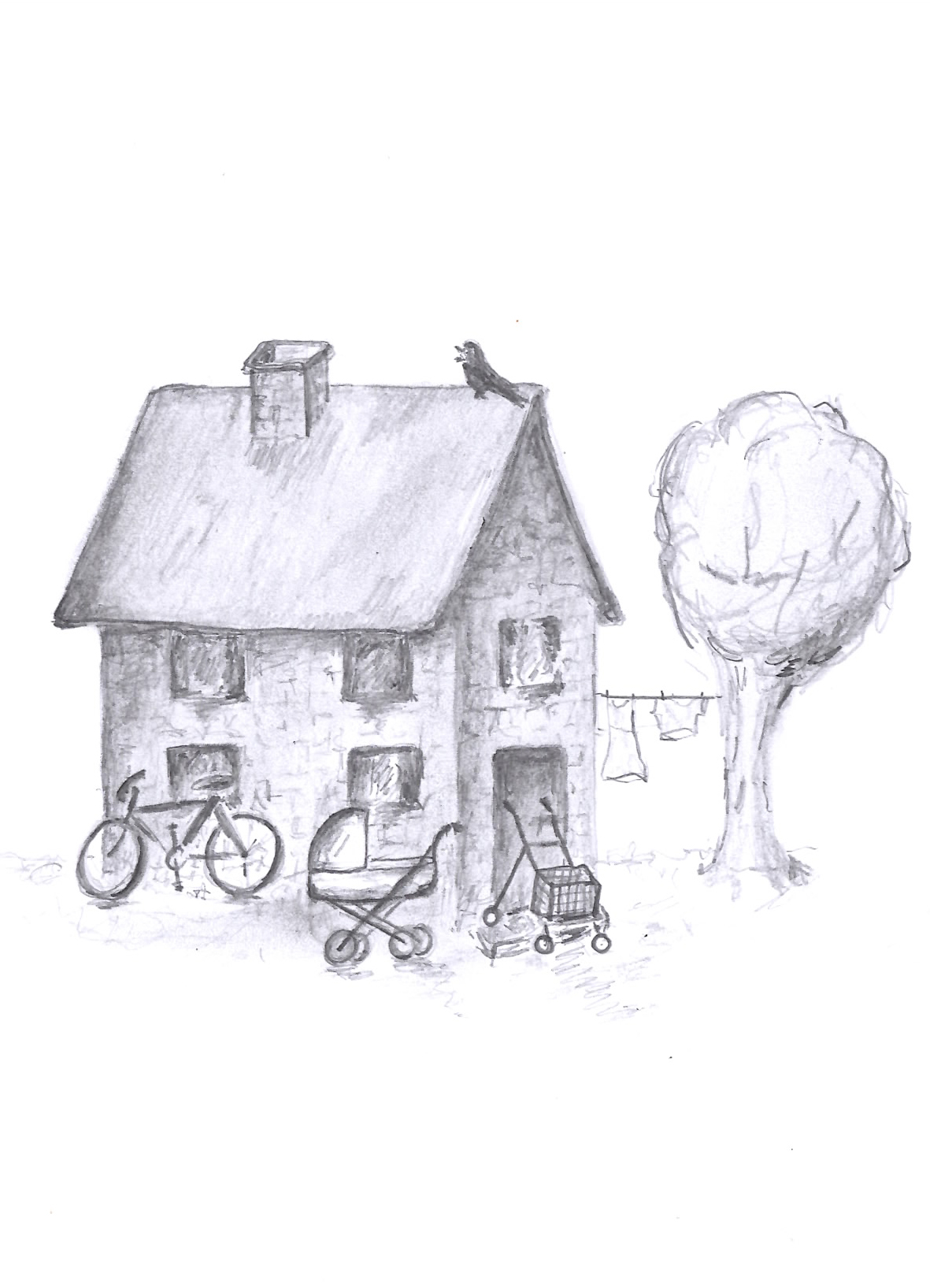
Dealing with Corona together
But not only are the funeral rituals different. In Ukraine COVID-19 is a different story than it is in Denmark. Here, everyone can have a serious case. Death is not reserved for the elderly and chronically ill. Everyone uses protective equipment. Nobody talks about herd immunity. You protect the children and the healthy in the same way as you protect the elderly and the sick.
– My grandmother died not so long ago. She has always lived with us. I grew up with my grandmother being in the house. In Ukraine, it is quite normal for several generations to live under the same roof. Nursing homes are virtually non-existent. You move in with your in-laws or stay with your own parents. In Ukraine, the homes house all phases of life. Therefore, a void literally arose when my grandmother died. My mother was left with a big house and a vegetable garden. I was in Denmark, so there was way too much space. Luckily, she got a boyfriend who moved in with her and filled out the space. He is her childhood sweetheart who she actually thought was dead. Suddenly he came back to her. It is a very sweet story, says Gina and smiles.
Facts about the importance of family in the Orthodox Church
In the Orthodox Church, the Trinity plays an important role – or rather three roles. God is one divine nature or essence, but three separate persons: the Father, the Son and the Holy Spirit.
Since God is three persons but one essence, it is the desire of the orthodox God that you should reflect this trinity in the way you live. You should not live as an “I”, but as a “we”. People should not isolate themselves, but live together in love. This does not mean that the individual must suppress his personality – on the contrary. Just as the divine trinity is three persons with different characteristics, the individual human being must be himself. However, man is destined to be himself with others. This means primarily that you must live in a family bound together by love. Next, be a part of society. And at the last level, be in solidarity with all mankind. Living together in the family and taking responsibility for one another is thus a central value in the Orthodox faith.
Source: FatherAlexander.org
In Denmark, we have a completely different view of the older generation. We live separately. Therefore, Corona can be combated by keeping distance from the elderly. A distance Gina sometimes finds absurdly long.
– One day, I am in the kitchen cooking, when my husband Eskild comes in with a huge basket of goodies. He tells me that his mother has come by. She lives in Holbæk. I simply don’t believe it! Did she drive all the way from Holbæk without coming in and saying hi? Eskild says that she placed the basket in the driveway, waved from the car and drove off. It’s so weird! Gina laughs and shakes her head.
– She could just keep a distance or be with us the garden. Just leaving is really to take the Corona crisis a little too seriously, she believes.
– When Eskild argues that we – who are young and healthy – can just as well be infected now, so that we can get it over with, it’s a very Danish approach. No one would be able to understand such an approach in Ukraine. The Ukrainians are focusing on the fact that it is not only old people who is dying. In Denmark, we limit the problem to the elderly and vulnerable, so that we can get the wheels turning. That narrative is compatible with the way our society works. In Ukraine it is different. People from three generations often live together, and you cannot throw the grandparents out of their home with nowhere to go. It goes without saying. Besides, they also look after the children and take care of the vegetable garden. Therefore, you have to look at it as a shared problem. That is why there is a different story about the virus, even though the virus is of course biologically identical throughout the world.
Facts on households in Denmark
In Denmark, 1,050,000 people live alone. Many of them are older people. In fact, 38% of Danes over the age of 65 live alone.
Just over 290,000 Danish women over the age of 65 live alone. While the number of men over 65 is significantly lower – in fact less than half. Only 140,000 Danish men over the age of 65 live alone.
The reason why more women than men live alone is that women generally live longer than men do.
Source: Danmarks Statistik
”When the Danes do what the authorities ask them to do, it is not because they do what they are told. Instead, they call thier behavior “public spirit.”
Masks and gloves
– We also have completely different views on how you protect yourself against COVID-19. In Denmark, “distance” is the big mantra. In Ukraine, it is “protective equipment”. People do not go out on the balcony without a mask. It is actually pretty absurd. The Ukrainian children are being trained to wear masks. And the masks are plenty, as their attitude to masks was different from the attitude, you see in Denmark, even before the Corona crisis. If you are going to visit someone in a hospital in Ukraine, you need to wear a mask on some wards. Therefore, my mother thinks it is strange that we do not use masks in Denmark.
– The further east you come, the more you believe in masks. One of my Russian friends sent me a picture from the Moscow subway. You see people standing very close to each other at the station. They are all wearing masks. And gloves. But there is no social distance. Their shoulders touch each other. Gina laughs. – I think that’s so weird. How can they feel safe? It is completely grotesque. Right at that point, I am probably very Danish – or Western, she states.
But there are also areas in which Gina does not feel quite as Danish.
– The Danes have a rebellious nature. No one should decide for them what to do. When the Danes do what the authorities ask them to do, it is not because they do what they are told. Instead, they call it “public spirit” which is easier to duck. The Danes’ public spirit may very well have an off day, making it easy to go on a trip to Sweden. The public spirit is within them, no authority can dictate it. I actually think that is a bit of a double standard. In Ukraine, it is different. The Ukrainians “follow the troops” and are more loyal to the authorities. Their actions are more controlled by something coming from the outside.
Until recently, the National Board of Health in Denmark has not focused on protective equipment. It has been doubted whether the effect of using a mask has been well documented. However, protective equipment has been used in the health sector, where the effect has not been doubted.
However, after the sharp rise in the number of infected in August, the picture is different. Now it is required to wear a mask on several locations. Moreover, the National Board of Health recommends that you use a mask whenever public transport is crowded.
”The concept of the vegetable garden has led to good things, as you do not feel isolated. “
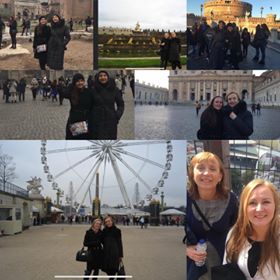
The trips
– I suggested to my mother that we could meet in Sweden if she could not come to Denmark. She did not find it funny. She was not having any of Sweden’s infectious anarchy. However, that does not alter the fact that travelling is our biggest challenge right now. We planned to stay near the Black Sea in July, she should have been here in August, and we had arranged a trip to Malaga…
– My mother loves that we travel together. We usually go to Spain or Italy. It’s my way of paying her back. I’m so glad I had the opportunity to show her the world. I would rather spend my money on events than on things. And her friends are totally jealous. But she also brags a bit about it, Gina laughs. – One of the advantages of having a young mother is that you can be friends. It is important to me to, that my mother and I live and experience things together.
– Now we meet on Messenger. Actually, my mom is very much on social media, Gina laughs. She takes selfies and sends me videos of herself. In that way, I do not feel she is so far away.
Facts about the Danes vacation
The Danes travel a lot. They prefer to go to Spain or Italy on holyday.
Source: Danmarks Statistik
The vegetable garden is Corona-free
– The further out in the country you live, the easier the corona time is to endure, because it is easier to stay at home. The concept of the vegetable garden has led to good things, as you do not feel isolated. You can get out and do something. You do not feel trapped inside.
– In addition, the kitchen garden has a practical and economical function. My mother is self-sufficient in potatoes, cucumbers and the like – i.e. all vegetables. Typically, you have a vegetable garden instead of an ornamental garden in Ukraine. If you have a piece of land, you use it for something. That is the mentality in Ukraine.
– My mother says to me: “You have such a huge garden, why don’t you grow a vegetable garden? “But in Denmark, it is not customary to plant a vegetable garden in the entire backyard. Gina laughs. And I’m not a farmer. I have grown up with a vegetable garden, but I have no need to grow anything myself. In Denmark, I would rather cultivate my family. And if there is a vacant piece of land, I set up a splash pool for Alex on a hot day.
Facts on the Danes' consumption of potatoes
In Denmark, children and young people eat on average approx. ½ – 1 medium potato a day. While adults on average eat approx. 1 ½ potato.
Source: Danmarks Statistik Danskerne kostvaner 2011-2013
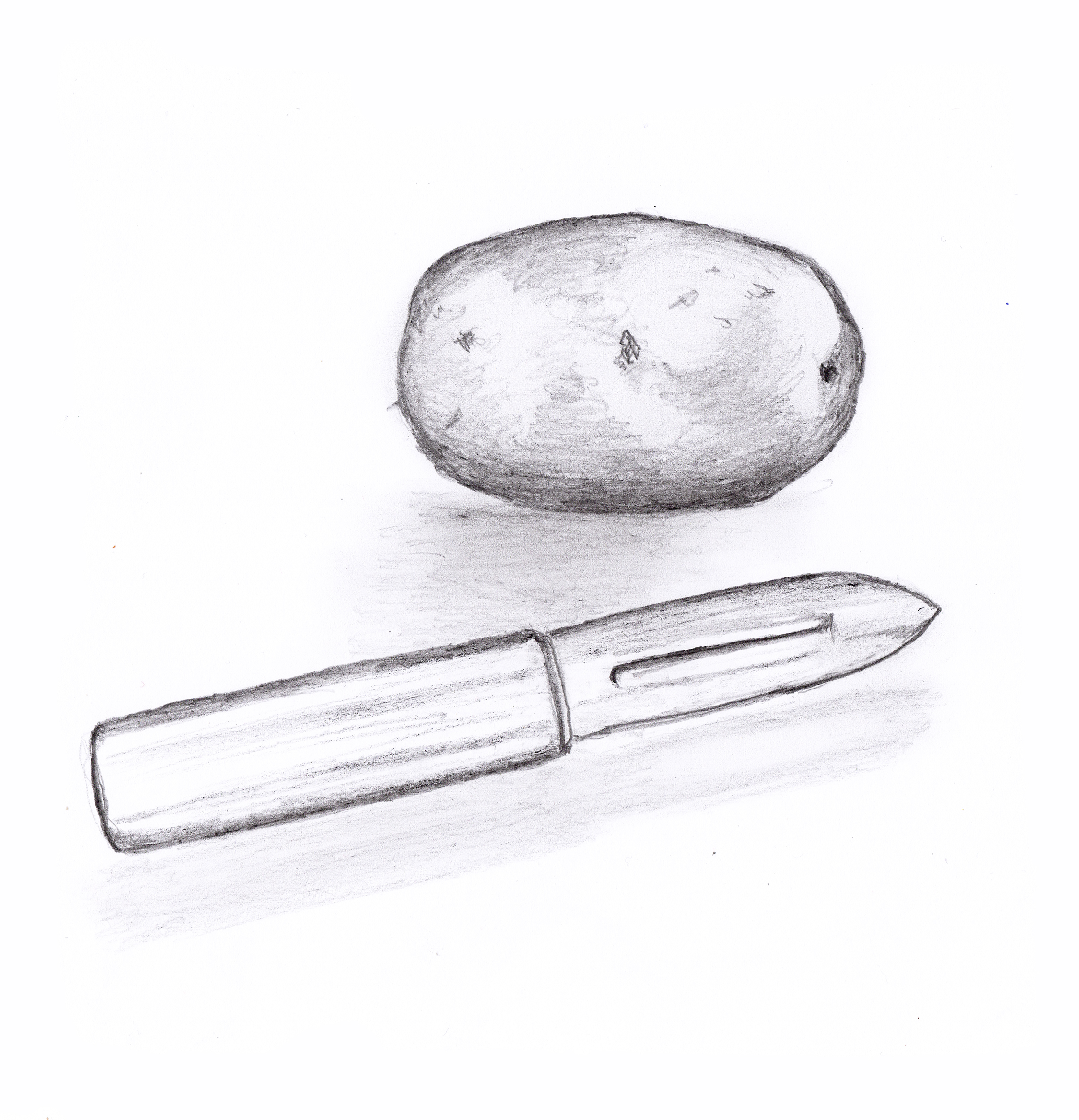

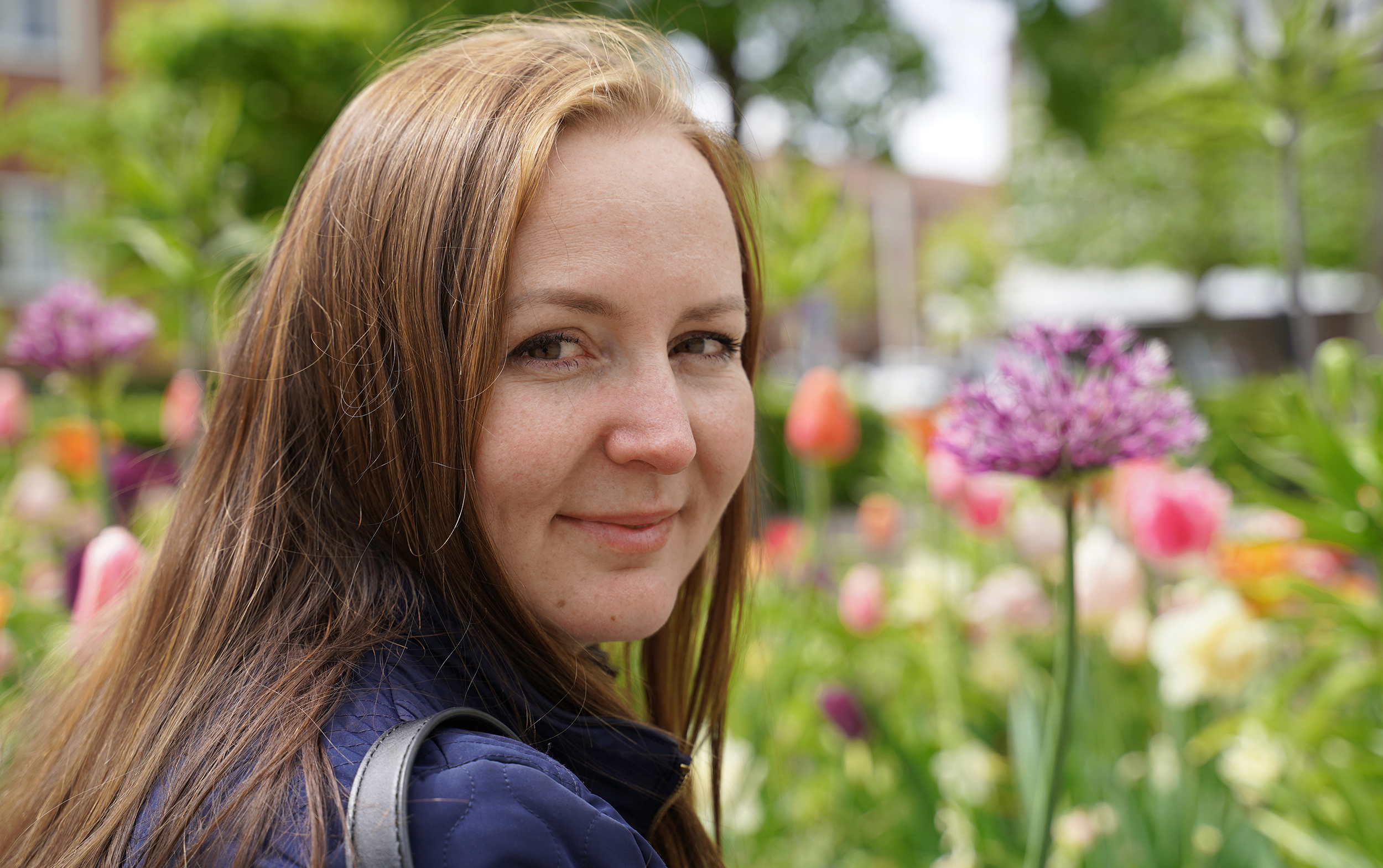
Gina M. Garde holds a Cand. Ling Merc in International Marketing and Communication from Copenhagen Busines School and works as an AC assistant at a language center. She came to Denmark 20 years ago and lives in Søborg with her Danish husband with whom she has a 6-year-old son – Alex.
